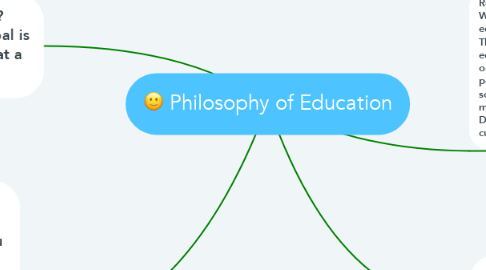Philosophy of Education
by Ross Luong


1. Whom are you going to teach? Who are your students? My goal is to teach secondary education at a high school setting.
1.1. What is special about adolescents and why do you wish to teach this age group? Adolescents are special because it is the growth between a young adult and childhood. They are constantly changing, physically, psychologically and socially. Throughout these changes and stages, it makes them so special. I wish to teach at this age group because it is the last stage before they enter into the real world. As an educator, you can have a real impact on their lives to make a change in the next generation.
1.1.1. What are your beliefs about how adolescents learn? My beliefs on how they learn is to let them explore on their own. Adolescents are filled with a bunch of creative juice and they need to express it to be creative and life-long learners. As a progressivism educator, the goal is to act as facilitator and allow students to explore different interests.
2. How are you going to teach? Based on your beliefs of how adolescents learn, how will you design instruction to have the greatest impact? I will design my curriculum on their interests. In general physical education, there many units that you can teach them. I want to give a list of options of what their interests are and imply it to my teaching. In addition, I will integrate the teaching of Common Core with general Physical Education.
2.1. My instructional strategies will revolve around my students. It will be a progressive learning process. For example, I will teach them all the skills necessary for the sport then allow them get creative with the skills for the sport.
2.1.1. In terms of assessment, I will provide different options for my students. Some students prefer written exams, while others prefer physical exams. As an educator, I want to cater an assessment that best fits their need.
3. Role of Education: What is the purpose of education? . The purpose of education is to develop one's intellectual, political, economic and social function into a member of the Democratic society and culture.
3.1. What is the role of a teacher? The role of a teacher is to develop instructions to help students learn effectively and efficiently. In addition, the goal is to act as a facilitator to the learning process and supply students with maximal creativity and resources.
3.1.1. What is the role of a student? The role of a student is to act as an active learner, explore creative interests and develop high-level critical thinking.
